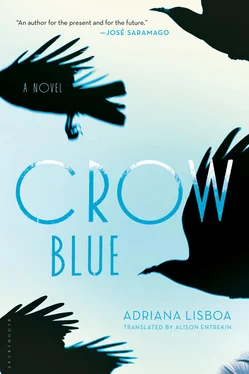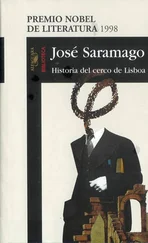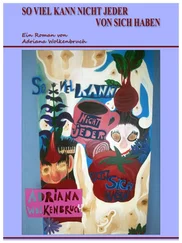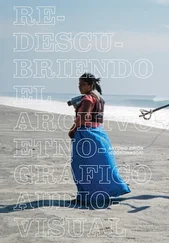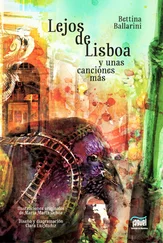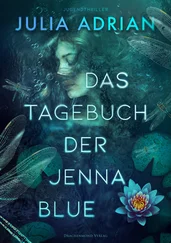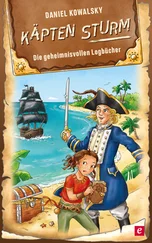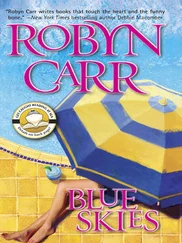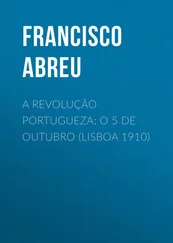Imagine a net, a mesh. If something’s enmeshed it’s like it’s caught in a net. Tangled.
And he demonstrated by interlacing the fingers of both hands, without taking his eyes off the television.
Enmeshed was a funny word. I tested it in my mouth, in a whisper. Come visit the city where the people and culture are enmeshed in the fabric of time and history .
I thought about it. Was it possible for the people and culture of a place not to be enmeshed in the fabric of time and history? Was there a people or a culture without time or history? But it was just a tourist brochure and tourist brochures, I was learning, hadn’t been written to make sense. The words had to be pretty. So did the photos. The photos in the tourist brochure of Albuquerque were pretty and showed a bunch of dry chilies hanging from a veranda, a couple riding bicycles on a mountain trail (their helmets didn’t have rear-view mirrors), and a lot of hot air balloons in the blue sky of the HOT AIR BALLOONING CAPITAL OF THE WORLD.
Carlos finished writing what he needed to write in his notebook, put his brochures away, turned off the bedside lamp and fell asleep with his head on my shoulder. I closed my eyes. I drifted off, lulled by the low volume of the TV on which a Mexican sports commentator was narrating the plays of the game so fast I couldn’t keep up. Before my eyes closed, I saw the walls changing colors.
Fernando held my hand as we walked around Florence’s dry garden and looked at the sculptures without paying attention. It was the only time that he and I walked along holding hands. He held my cold little hand with his cold large hand and at a glance, genetics aside, we could have been father and daughter.
Then we entered Florence’s studio and there was the spirit of things in progress there. The studio was a place in the gerund, a place where things left their crude state, being produced, becoming. Florence kept the pottery that she sold in a large cupboard with glass doors and invited us to have a look and gave me and Carlos a lump of clay each.
For you to make something with. Anything at all.
Carlos stared seriously at the misshapen lump of clay in his hand, creased his forehead and started kneading and tugging on it to see if maybe something would come out of there of its own accord. A spontaneous sculpture. I took my piece and started rolling it in my hands. All my creativity was able to produce, at that moment, was a ball. Something disobliged to have angles, a round artifact. A globe of earth.
Florence?
Yes?
It was June who had spoken. Florence, she repeated, we need to talk to you.
Talk? Florence smiled and shook her head a little and her hair shook on her head. OK, let’s talk.
And she pulled up a chair and June and Fernando sat on a couch covered with an old wool blanket. Carlos and I remained standing, a slight distance away, playing with the lumps of clay in our hands. Florence sat on the chair, her body leaning slightly forward, hands in her lap with her fingers interlaced.
Your work is very beautiful, June continued, appointing herself spokeswoman of the group, and cleared her throat. Very beautiful. But that’s not why we came here.
Florence was listening, very attentive and interested, as if we were about to give her a far-reaching explanation of the butterfly effect or antimatter.
We came here because of that little girl over there.
The faces all turned towards me and I, not knowing what to do, did nothing and kept rolling my ball of clay.
Some time ago, in the late seventies, Vanja’s mother came to live in New Mexico, June continued. She was quite young. Her name was Suzana. She had come here from Brazil when she was still a child, with her father, after her mother died.
June spoke slowly. With her smile fading slightly at the lack of sense in those words, Florence listened.
Some time later, a few years later, Suzana married Fernando (and June placed her hand on his shoulder, but quickly removed it, as if she had committed an indiscretion, a faux pas). And later they broke up. And she had a short relationship with another man. Your son Daniel. It didn’t last long. I don’t know if you ever met her. Probably not.
Florence was beginning to understand. She showed it by nodding. A relationship with her son Daniel. Short. Didn’t last long.
When was that? she asked.
They spent some time together in early 1988, said Fernando. It’s been almost fourteen years. She lived in Albuquerque, on San Pablo Street Northeast.
I was surprised by Fernando’s instant math. But maybe he knew those numbers off by heart. Maybe he knew that (other) story off by heart, a compulsory talent he wished he didn’t have.
Yes, said Florence, Daniel lived in Albuquerque at that time. But I only remember meeting one girlfriend of his, from his time in Albuquerque, and she wasn’t called Suzana. She was Ashley. Or Audrey. Or Abigail. Something like that, that started with an A. It’s been a long time.
Florence understood, but she didn’t understand everything.
We came here, June continued, because during the time she spent with your son Suzana fell pregnant, and at the end of the year she had a daughter.
And everyone looked again at that little girl over there , life model, guinea pig, a bizarre specimen with some deformity or shocking dysfunction visible to whoever went to the trouble of looking.
The obvious question, that I (dysfunctional) had never thought of: what guarantee was there that I really was the daughter of that woman’s son? One could only be sure of such things by resorting to the cold protocol of science. What guarantee was there that that whole story — Suzana, Albuquerque, short relationships — was true? We might have been a bizarre troupe of experimental con artists, trying to see if we could convince innocent old ladies with our heterogeneous accents and cock-and-bull stories involving dubious paternities and abnormal disappearances.
But she got up and came over to me. She gazed into my eyes. She forgot whatever it was that usually danced in the aerial space just over her forehead. She forgot Fernando, June and Carlos.
Is it true? she asked me.
Of course Florence was looking for Daniel in me. And I wondered if I too would have seen him in my passport photo if I had known him, if I would have reencountered him in the genetic amalgam of my face, or if my mother didn’t need men even for that. Not even to lend a little of their biotype to her daughter. I wondered what Florence was seeing there in her trance, as she stared at that speechless thirteen-year-old oracle, rolling a ball of clay in her hands.
And I felt strange. I, who had always refused impossible projects (like the horizon seen from Copacabana), had devoted myself to one that was almost that: a fairytale father, a father scattered across the globe by myself in a number of potential places — all of them beyond the horizon seen from Copacabana. Of course: among all of the potential places I hadn’t listed the Ivory Coast. And yet there was less ocean and sky between Rio de Janeiro and the Ivory Coast than between Rio de Janeiro and the western United States.
If I set sail by boat from Copacabana, all I’d have to do was travel straight in a northeasterly direction to arrive at the Ivory Coast. If I arrived very secretively, a smuggler of myself, I wouldn’t even need a passport, I wouldn’t even need to stop at an immigration official’s booth and go through the tedious border protocol.
It didn’t really matter if this woman believed me (us) or not. She could shoo us out of there and tell us never to come back, opportunists that we were. And I would shrug as effortlessly as Fernando did, his habitual effortlessness. And I would leave there and never return and she could think what she wanted of me (us). I felt as if I’d entered the wrong movie theater and instead of finding an exciting science fiction film I’d come across a romantic comedy or a musical. I hate musicals. I definitely didn’t know what I was doing there anymore: in Florence’s studio, on Redondo Road, in Jemez Springs, in New Mexico, in the United States, in the northern hemisphere; I didn’t even know what I was doing on the third ball orbiting the sun. Everything was strange and I felt strange with that woman staring at me through her milky eyeballs.
Читать дальше
